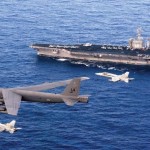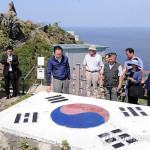Daily Report Archives
Established in December 1993, the Nautilus Institute’s *N*ortheast *A*sia *P*eace and *S*ecurity *N*etwork (NAPSNet) Daily Report served thousands of readers in more than forty countries, including policy makers, diplomats, aid organizations, scholars, donors, activists, students, and journalists.
The NAPSNet Daily Report aimed to serve a community of practitioners engaged in solving the complex security and sustainability issues in the region, especially those posed by the DPRK’s nuclear weapons program and the threat of nuclear war in the region. It was distributed by email rom 1993-1997, and went on-line in December 1997, which is when the archive on this site begins. The format at that time can be seen here.
However, for multiple reasons—the rise of instantaneous news services, the evolution of the North Korea and nuclear issues, the increasing demand for specialized and synthetic analysis of these and related issues, and the decline in donor support for NAPSNet—the Institute stopped producing the Daily Report news summary service as of December 17, 2010.
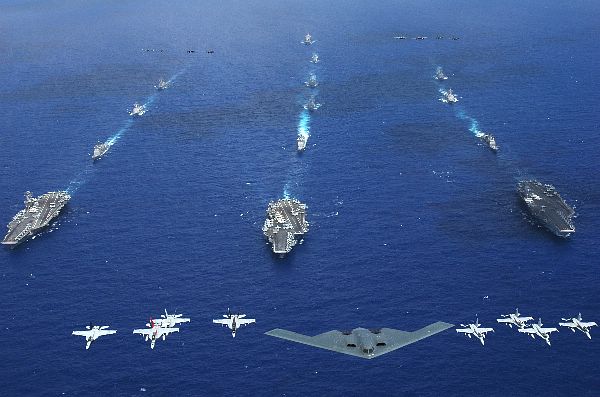
Clarity – a Spiral Slower
by Roger Cavazos – DPRK Contributor
America, time for some self-introspection about AirSea Battle (ASB)/ pivot / rebalance. We never left Asia, but there were clear signs our attention …
Go to the article
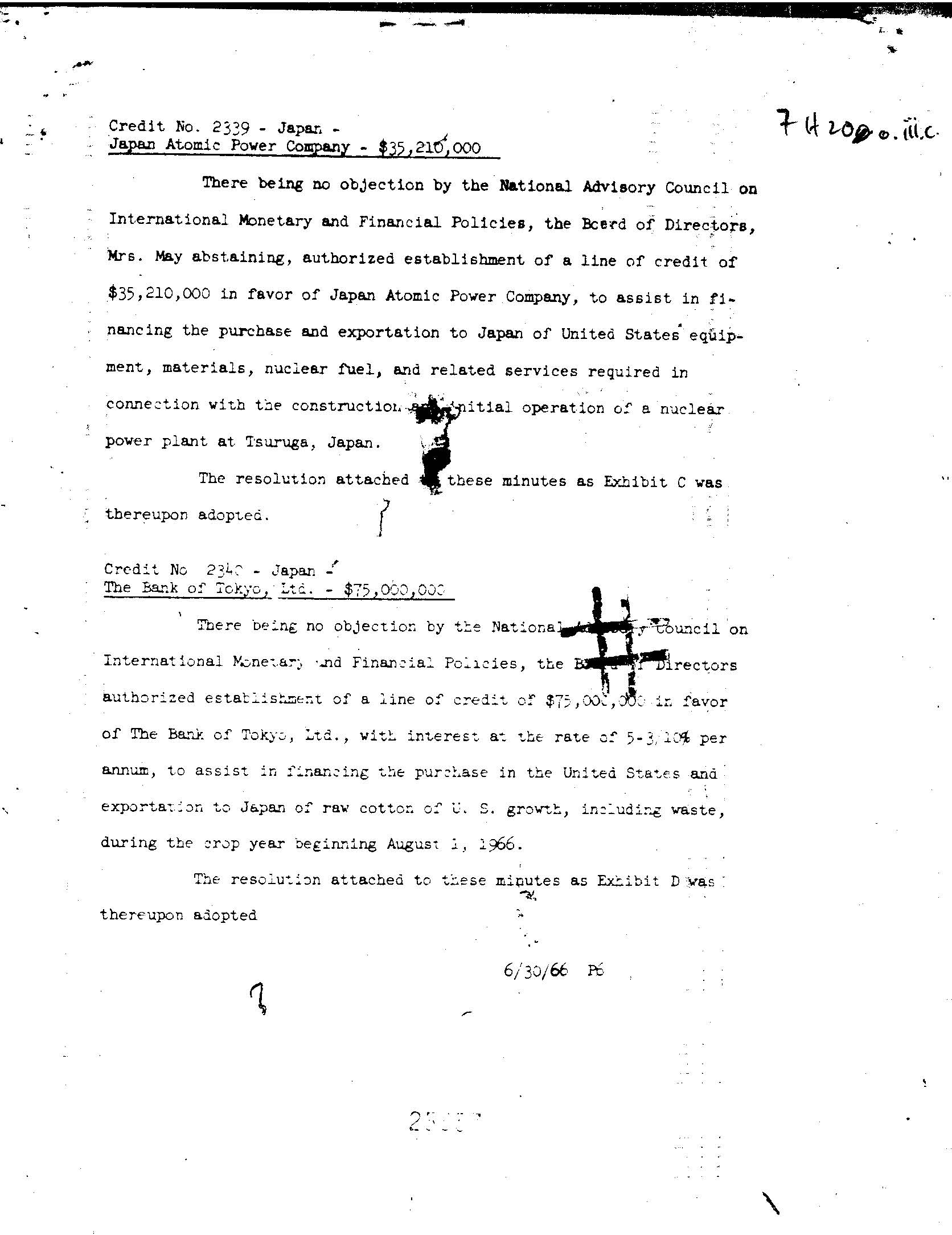
This loan report from the Export-Import Bank of Washington highlights the finances and costs required to build the Tsurugua plant and illustrates how supportive the banks and the Japanese government were of building a nuclear plant.
“The Japan Development Bank has offered its unconditional guarantees of the obligations of the JAPC. Such guarantee is considered by the staff as the strongest available other than that of the Government, since the Japan Development Bank is strong in itself and is a Government institution. In addition to the guarantee, the active financial and constructive support of the nine power companies, the five industrial combines of Japan, and the Japanese Government can reasonably be expected.”
This report was released to the Nautilus Institute under the US Freedom of Information Act (FOIA).
Go to the article
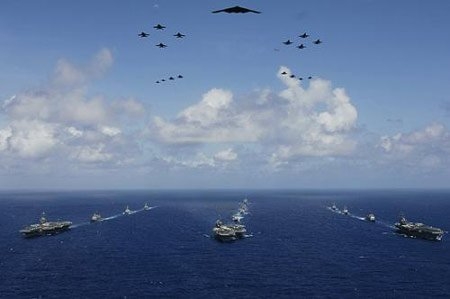
Peter Hayes writes that the role of the Hawaii based CINCPAC, the commander-in-chief of the Pacific Command, “originated in the competition between the Navy (Admiral Nimitz, central Pacific) and the Army (General MacArthur, western Pacific) in the prosecution of the war against Japan.” While today CINCPAC’s role has been greatly diminished, the newly formed AirSea Battle Office fills a similar function. Hayes concludes that “old sea dogs are sailing into new geostrategic and bureaucratic battles in the west Pacific with fancy labels on them–but nothing new in terms of a strategy that would engage China as an equal partner in a concert rather than a balance of powers.”
Peter Hayes is Director of the Nautilus Institute in San Francisco and Professor of International Relations, Global Studies, RMIT University, Melbourne.
Go to the article

Old Sea Dogs In New Battles With Fancy Labels
by Peter Hayes – Deterrence Contributor
These days, airlines fly direct to DC, and the diplomatic power of CINCPAC, the commander-in-chief of the entire Pacific Command based in Hawaii, has receded…
Go to the article
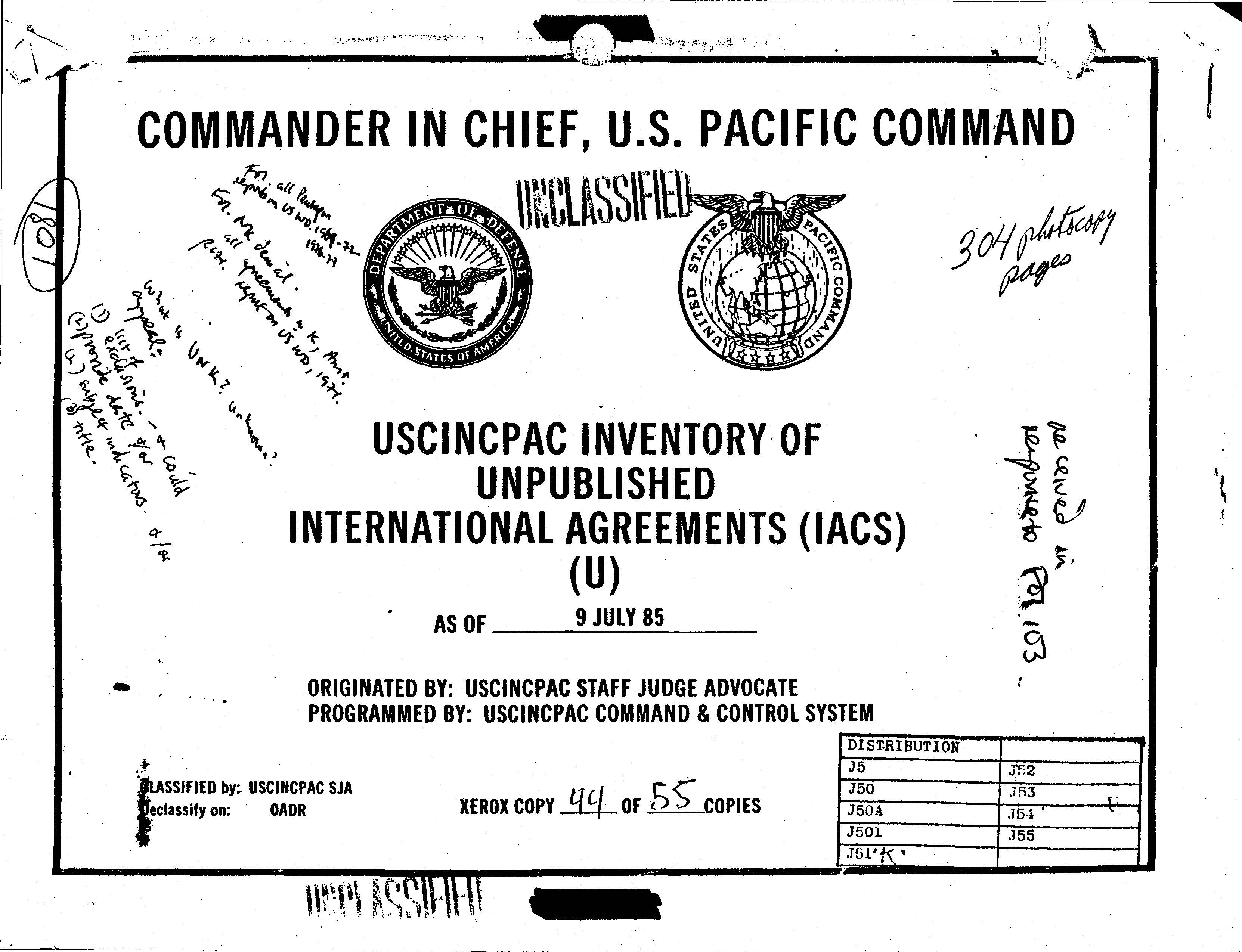
This July 9, 1985 bibliographic list of unpublished international agreements, prepared by the Commander in Chief, U.S. Pacific Command Staff Judge Advocate, includes administrative countries, conclusion dates, effective dates, duration and signers for each unpublished agreement.
This report was released to the Nautilus Institute under the US Freedom of Information Act (FOIA).
Go to the article

Energy insecurity at the Bottom of the Pyramid
by Nikhil Desai – Energy Security Contributor
Between a third and a half of humanity either don’t have the electrical grid or gas/heat pipelines, or can’t rely on them. Though billed as the largest blackout in history…
Go to the article
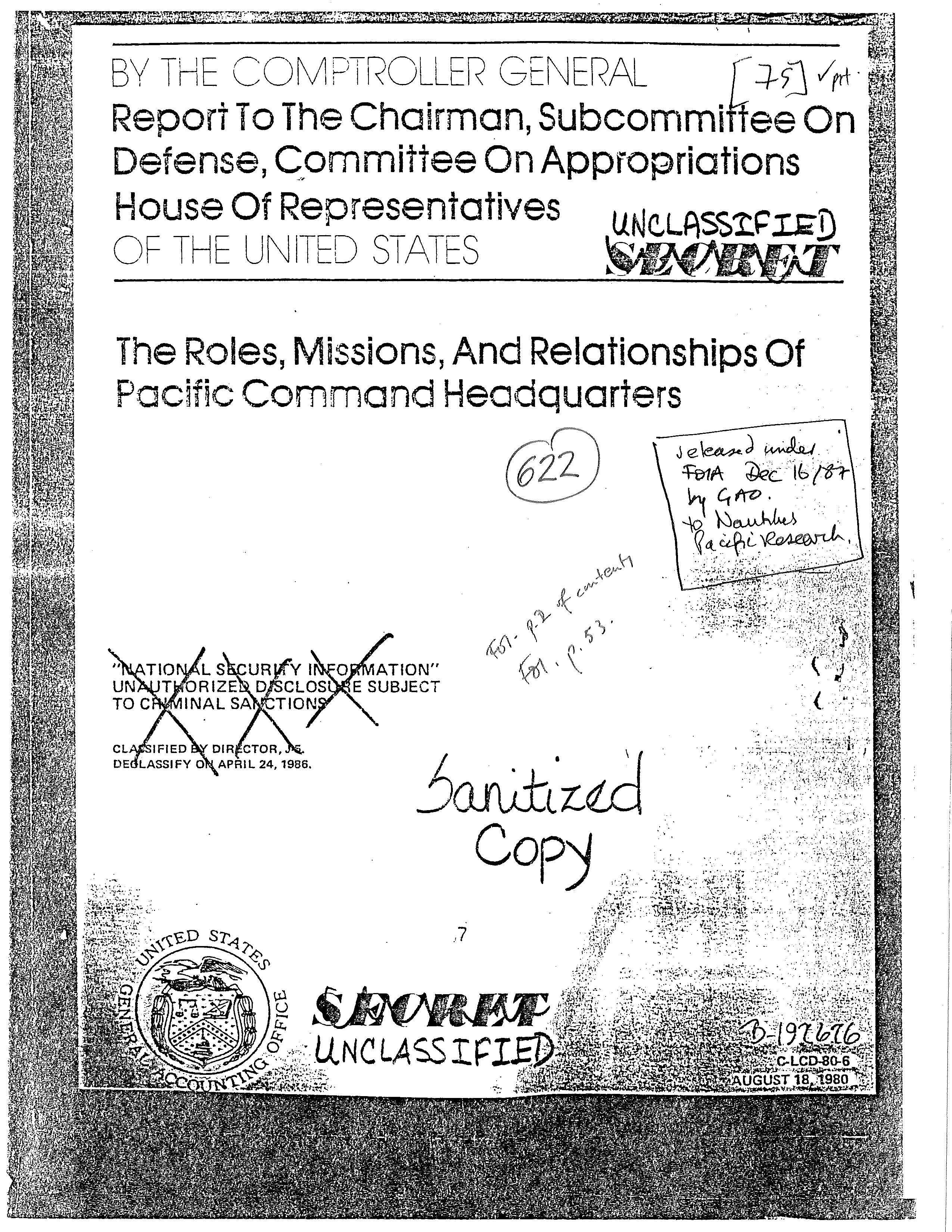
This 1980 report, prepared by the Comptroller General, reviews the roles of the Commander-in-Chief, Pacific, and his unified command structure. This report provides 1) detailed information on the unified command’s missions, specific tasks, and functions, 2) the number and grade of personnel assigned throughout the command, 3) the cost to maintain the Commander-in-Chief, Pacific, and 4) an assessment of the Commander-in-Chief’s, Pacific, role in training and other areas.
This report was released to the Nautilus Institute under the US Freedom of Information Act (FOIA).
Go to the article





